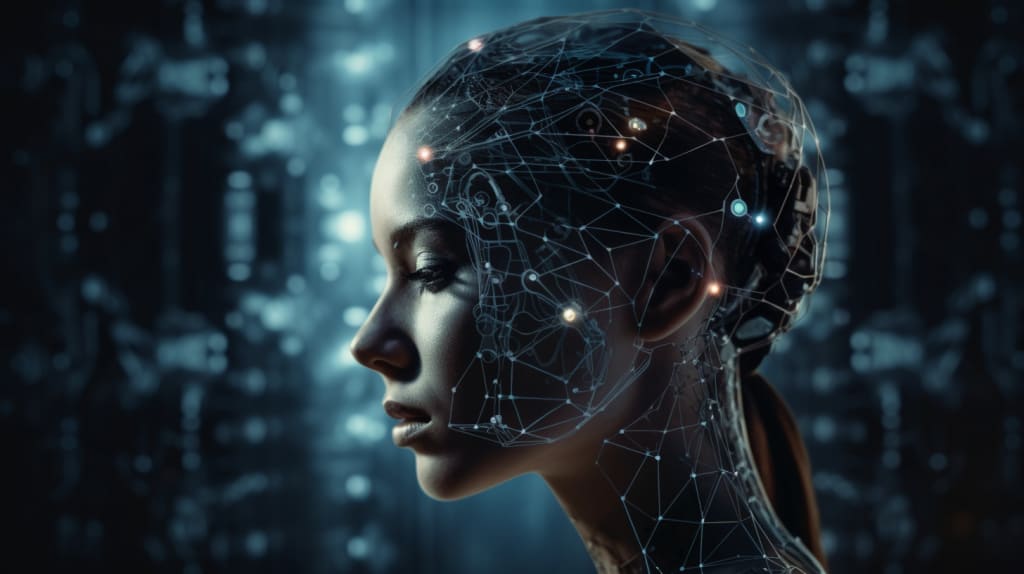
As we inch towards the future, we find ourselves standing at the precipice of an AI revolution, a seismic shift that threatens to transform every aspect of our lives. This revolution, championed by visionaries like Elon Musk, is increasingly becoming a harbinger of colossal change. Musk proposes a future where our minds are enhanced with chipsets to keep pace with the rapid advancements of artificial intelligence. But what does this radical proposal mean for traditional schooling systems, jobs, and society at large? As we delve into this question, we find ourselves navigating uncharted waters, uncovering an array of possible futures that may redefine human civilization as we know it.
The first impact that springs to mind is the potential transformation of our education systems. Musk's proposition implies a world where people can download data directly into their minds, bypassing traditional learning methods. Would we be learning specific things or aiming to know everything? The idea of a society where everyone possesses the same kind of information at the same level prompts serious contemplation. The ripple effects of such a uniformity of knowledge are vast and complex.
Education has always been viewed as a tool for diversification, enabling individuals to develop unique skills and knowledge, leading to a variety of professions and specialties. This individual diversity fosters creativity, innovation, and problem-solving, as different perspectives and expertise come together to tackle the world's challenges. However, with the advent of AI and the possibility of mental chipsets, this diversity could be threatened. If everyone knows everything, what would distinguish one person from another professionally? Would our passions and personal inclinations hold any weight?
This hypothetical scenario may lead to a dystopian future where job roles and industries could be determined not by individual choice but by external allocation. Government factions, armed with the powers of AI, might place individuals in positions and industries based on societal needs rather than personal preference. An individual's desire to work in a certain field might be considered irrelevant, and they could be deemed "dispensable." Such a future carries the risk of transforming our society into a homogenous monolith where uniqueness and personal choice are luxuries of the past.
This paints a bleak picture of the future of work, potentially leading to societal segregation based on AI-determined roles rather than individual skillsets and passions. The fundamental right of humans to choose their path could be replaced by the cold, calculating algorithms of AI, making us question the very essence of our humanity.
Indeed, the true danger of AI does not lie within the technology itself. Instead, it resides in its potential misuse and the possibility of going too far, rendering us obsolete in the face of our own advancements. There's a real risk that we may become subservient to our creations, surrendering our autonomy to machines and algorithms. The lure of efficiency and advancement may entice us to trade our freedom for convenience, a step that could fundamentally alter the human condition.
In this evolving landscape, it's imperative to remember that technology should serve humanity, not the other way around. Musk's proposition of neural chipsets is a provocative one, and it brings into sharp focus the necessity of careful, thoughtful integration of AI in our lives.
While we cannot deny the transformative potential of AI, we must ensure that its integration doesn't compromise our values, freedoms, or individuality. The ability to control and regulate AI is crucial, as is the need to preserve diversity and choice in our societies.
As we stand on the brink of the AI revolution, we are also in the midst of an ethical revolution, forced to reevaluate our relationship with technology and its implications for our futures. It is up to us to ensure that this revolution is a tool for human empowerment rather than a catalyst for societal division.
The future is rife with uncertainty, and the landscape is continuously evolving. There's a pressing need for thoughtful discourse and robust regulatory frameworks to shape the narrative around AI. It's high time we took a step back, examined the road we're traveling, and made the necessary course corrections before we find ourselves in a future we didn't choose.
AI holds the potential to bring about an age of prosperity and progress like none we've ever seen. However, as we march towards this exciting horizon, we must remember to take along the essence of our humanity – our ability to choose, to create, and to dream. The ultimate power must remain with the people, ensuring that AI serves as a tool to enhance human life rather than as a mechanism for control.
The AI revolution is coming, and it's up to us to ensure it's a revolution that serves humanity, respecting our rights and freedoms while facilitating progress. Our task is not to resist change but to guide it in a direction that aligns with our core values and enhances our collective future. The stakes couldn't be higher, but with thoughtfulness and foresight, we can ensure that the future of AI is a bright one.
About the Creator
LEADSTORM
Addressing vital issues, expressing opinions, and fostering authenticity, and transparency in this world.






Comments
There are no comments for this story
Be the first to respond and start the conversation.